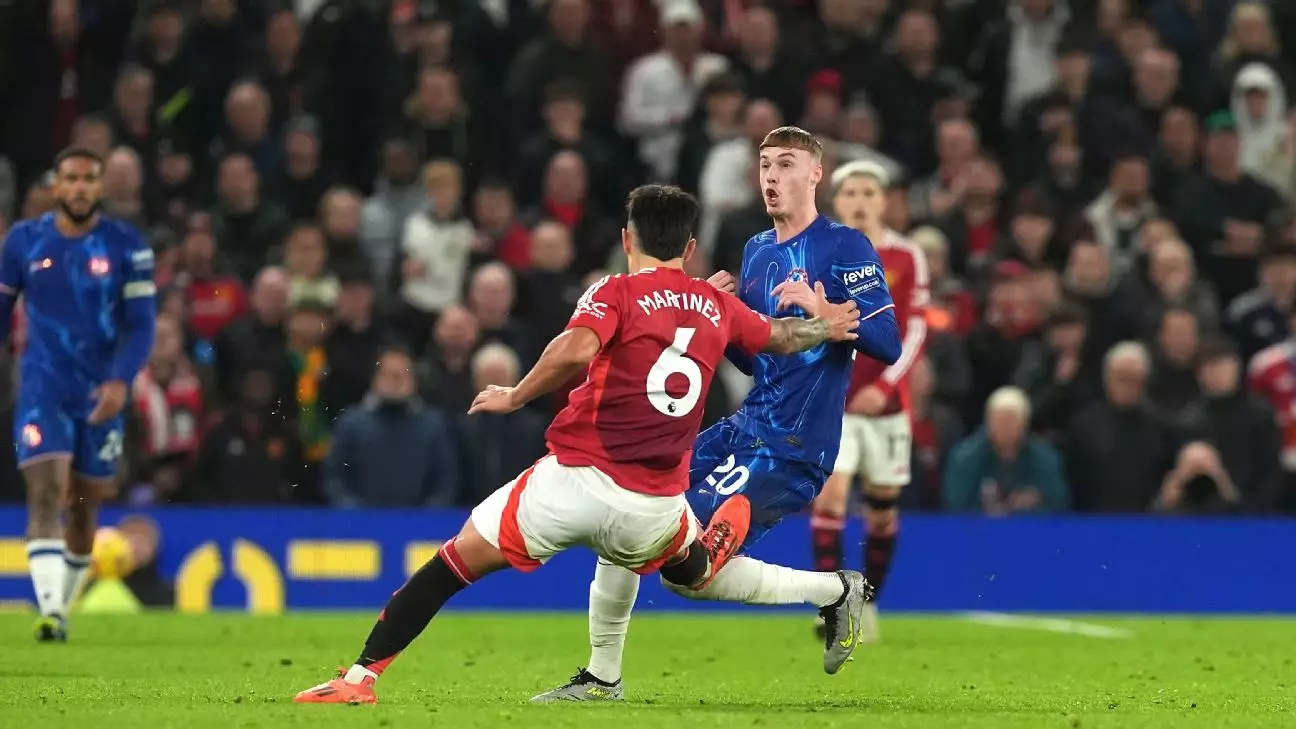In a thrilling encounter at Old Trafford, Chelsea faced Manchester United in a Premier League match that ended in a 1-1 draw. However, it was not the tactical battle or the scoreline that garnered the most discussion post-match; it was a controversial challenge by United’s Lisandro Martínez on Chelsea’s Cole Palmer. The incident has left fans, pundits, and players divided over whether Martínez deserved a harsher punishment for his actions during an intense moment in the game.
As the match approached its conclusion, tensions escalated, exemplified by Martínez’s challenge on Palmer, which was deemed reckless by many observers. Referee Robert Jones opted for a yellow card after reviewing the foul, which occurred when Martínez caught Palmer high on the knee. The Video Assistant Referee (VAR), Michael Salisbury, confirmed that the original decision would stand, categorizing the incident as a “reckless challenge” rather than “serious foul play.” This distinction has proven crucial in the ongoing debate about the appropriateness of the punishment.
Chelsea’s head coach, Enzo Maresca, did not hold back in expressing his discontent over the referee’s decision. He argued fervently that Martínez’s challenge warranted a red card, stating that the Argentine had ostensibly “gone for the legs” of Palmer. Maresca’s assessment underscores a broader frustration amongst coaching staff when it comes to officiating consistency. In his post-match remarks, he expressed that it was “quite clear” to anyone reviewing the footage, yet officials had seen it differently. His claim illustrates a dilemma in football where interpretation plays a significant role in officiating, leaving room for subjective judgments.
Amidst the controversy, former Manchester United captain Roy Keane echoed Maresca’s sentiments, labeling Martínez as a “lucky boy” for escaping a red card. His condemnation of the tackle reflects a common sentiment in the football community where opinions vary widely based on individual interpretations of the rules and the severity of the foul. Meanwhile, United’s interim manager Ruud van Nistelrooy, who had not yet viewed a replay of the incident, refrained from joining the fray. His reluctance to comment without concrete evidence highlights the often knee-jerk reactions that fuel debates in sports analysis.
This incident serves as a microcosm for the debates surrounding officiating in modern football. The difference in opinion about Martínez’s challenge not only reveals the complexities involved in making split-second decisions on the field but also underscores the need for ongoing dialogue about the effectiveness of VAR technology. As the sport evolves, the balance between human judgment and technological assistance continues to be tested, prompting calls for clearer guidelines and more robust training for referees. The fallout from this match may reverberate through both clubs as they navigate the implications of decisions that can affect their standings and morale for the seasons ahead.

